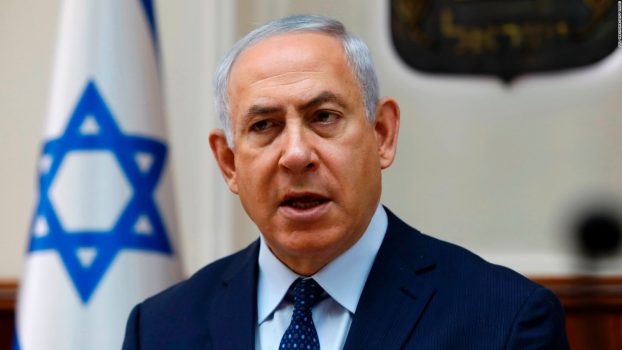
Prime Minister of Israel, Benjamin Netanyahu, has dissolved his six-member war cabinet following the departure of centrist opposition leader Benny Gantz and his ally, Gadi Eisenkot. This decision, widely anticipated, shifts the responsibility for sensitive war-related decisions with Hamas in Gaza to a smaller forum.
The dissolution follows Gantz’s resignation eight days ago over what he described as a lack of strategy for the war. His departure triggered calls from far-right ministers to replace him. By dissolving the war cabinet, Netanyahu avoids potential conflicts with coalition partners and international allies.
A spokesperson for the Israel Defense Forces (IDF) assured that the change would not affect the chain of command. The IDF’s chief spokesman, Rear Admiral Daniel Hagari, stated, “Cabinet members are being changed and the method is being changed. We have the echelon, we know the chain of command. We’re working according to the chain of command. This is a democracy.”
Gantz and Eisenkot had joined a national unity government with Netanyahu’s right-wing coalition shortly after the war began in October. They announced their resignations on June 9, citing dissatisfaction with Netanyahu’s leadership.
Following their resignation, far-right National Security Minister Itamar Ben-Gvir demanded a place in the war cabinet. On Sunday night, Netanyahu informed ministers that he had chosen to dissolve the decision-making body rather than appoint new members. “The [war] cabinet was in the coalition agreement with Gantz at his request. As soon as Gantz left – there is no need for a cabinet anymore,” Netanyahu explained, according to the Jerusalem Post.
Haaretz reported that some issues previously handled by the war cabinet will now be addressed by the 14-member security cabinet, which includes Ben-Gvir and Finance Minister Bezalel Smotrich. Sensitive decisions will be discussed in a “smaller consultation forum” expected to include Defense Minister Yoav Gallant, Strategic Affairs Minister Ron Dermer, and Aryeh Deri, chairman of the ultra-Orthodox Shas party.
The IDF launched its campaign in Gaza following an unprecedented attack on southern Israel by Hamas on October 7, which resulted in about 1,200 deaths and 251 hostages. The conflict has since claimed over 37,340 lives in Gaza, according to the territory’s Hamas-run health ministry.
In recent days, tensions within the Israeli government have heightened, with Netanyahu and far-right ministers criticizing the IDF’s decision to introduce daytime “tactical pauses” near Rafah for humanitarian aid deliveries. Ben-Gvir condemned the policy, while Netanyahu reportedly remarked, “We have a country with an army, not an army with a country.”
The IDF clarified that these pauses do not imply a cessation of fighting, leading to some confusion. The UN agency for Palestinian refugees (Unrwa) reported ongoing combat in Rafah, indicating no operational changes.
Amid the Gaza conflict, the Israeli military warned of escalating tensions with Hezbollah in Lebanon, potentially leading to a broader war. In response to increased exchanges of fire, a key US diplomat is returning to the region to help de-escalate tensions on the Israel-Lebanon border.

White House Says Military Option Open On Greenland Acquisition
Trump Calls Case Against Maduro “Infallible” Ahead Of U.S. Court Appearance
South Africa Raids U.S. Refugee Processing Centre, Arrests Seven Kenyans
Time Magazine Names AI Visionaries ‘Person of the Year’